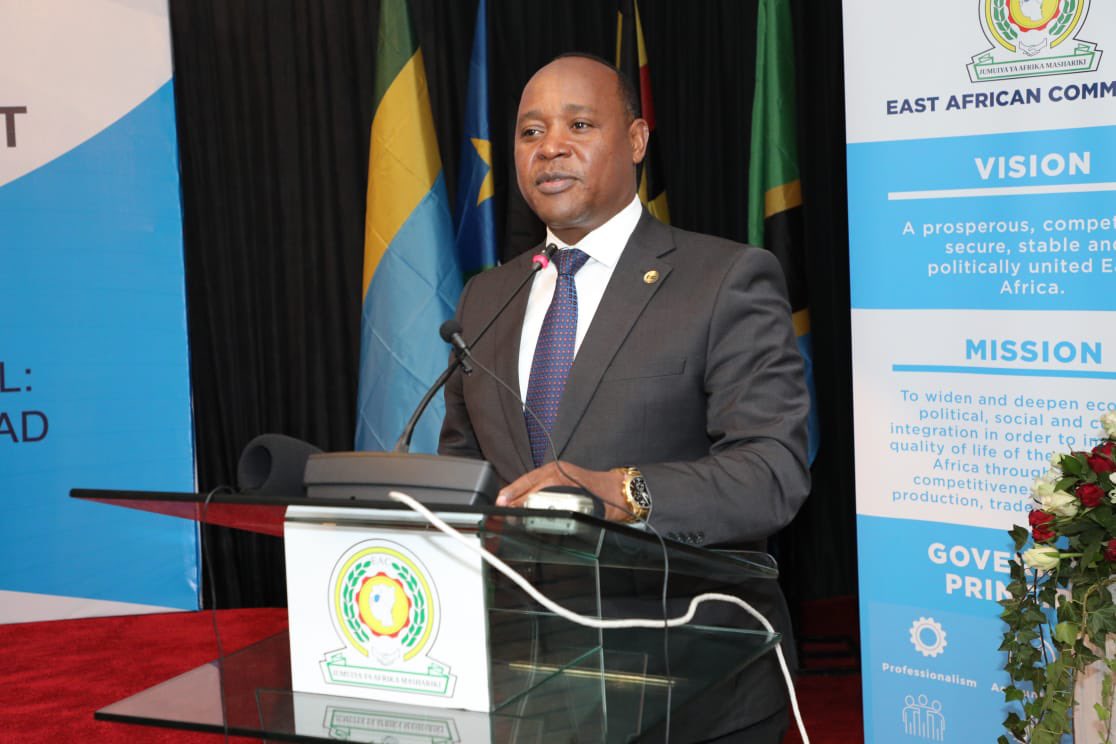

During a regional private sector session held Wednesday, July 20, a day before East African Community (EAC) leaders meet in Arusha, Tanzania, from July 21 to 22, five key issues the business community wants leaders to address so as to improve the business environment were highlighted.
On Thursday, July 21, EAC leaders will hold a high level retreat on the Common Market. They are expected to, among others, take stock of the progress of implementation of the EAC Common Market Protocol; adopt strategic measures to unlock the lags and bottlenecks in establishment of the Common Market; and agree on a roadmap for the full realization of the Common Market.
The Common Market Protocol is the second pillar of the bloc’s integration agenda. Later, on Friday, July 22, the Heads of State will hold the 22nd Ordinary Summit at the Arusha International Conference Centre, in Arusha.
According to John Bosco Kalisa, the CEO of the East African Business Council (EABC), here are the five key issues they want the leaders to address:
Summit to direct the EAC Council of Ministers to amend the Common Market Protocol to provide for regional laws for each freedom and right. The Common Market, which is in line with the provisions of the EAC Treaty, provides for four freedoms; the free movement of goods; labour; services; and capital.
The four freedoms were expected to boost trade and investments and make the region more prosperous but have often encountered challenges – ranging from political disputes between partner states to unpredictable situations caused by climate change as well as the Covid-19 pandemic – that meant the slowing down bloc’s integration agenda.
The Protocol on the establishment of the EAC Common Market entered into force in July 2010, following ratification by all of the then five partner states: Burundi, Kenya, Rwanda, Tanzania and Uganda. This way back before South Sudan and the DR Congo joined the bloc.
The business community also wants the Summit to direct the Council to develop a regional law on sanctions to address slow ratification, implementation and enforcement of protocols, policy, regulations, and directives.
They also want the Heads of State to give a deadline for ratification and depositing of Protocols – double taxation, the extension of EACJ jurisdiction on trade and investment matters. Particular emphasis is put on Article 24(2) on the Trade Remedies Committee.
Another demand is for the Summit to direct Partner States to implement the One-Network-Area (ONA) on data and voice fully, immediately and without further delays.
Regarding the issue of telecommunications and broadband internet, the regional business group notes that while Rwanda, Kenya, Uganda and South Sudan are implementing the ONA model, Burundi and Tanzania have not joined the ONA, "making the cost of telecommunications and broadband internet prohibitive because of roaming charges."
High telecommunications and broadband internet charges and taxes increase the cost of doing business and limit the competitiveness of businesses in the region. High licensing and numbering fees, unharmonised inter-operator tariff rates and the non-adoption of the ONA across the region increases the cost of doing business.
Finally, they want the Summit to direct Council to prioritise harmonisation of domestic and aviation taxes and levies by the end of the year 2022.
Meanwhile, business leaders also want Burundi and Tanzania to ratify the EAC agreement for the avoidance of double taxation and the prevention of fiscal evasion with respect to taxes and income by the end of 2022.
In 2018, EAC Partner States adopted a policy on the harmonisation of domestic taxes. The objective was to create a clear regional approach on the harmonisation of income tax, value added tax and excise duty. This policy stipulates roles and responsibilities of partner states on the processes and implementation of harmonisation of domestic taxes in an efficient, cost-effective and consistent manner.
Identify areas where development partners can contribute
According to the EAC Secretariat, the regional leaders will also identify key areas where development partners can contribute to the attainment of the Common Market.
Last month, EAC Secretary General, Peter Mathuki, told The New Times that it was high time "we take stock and reflect on whether it [EAC Common Market Protocol] is properly functional and on what it is that we need to do so that in the region, the common people can benefit better.”
Despite challenges, regional leaders have always maintained or re-affirmed the commitment of the Summit to the EAC integration process.
About 300 participants from Partner States, private sector, civil society and development partners travelled to Arusha to attend both the High Level Retreat and the 22nd EAC Summit.
"At their 22nd Ordinary Meeting, the EAC Heads of State will, among other things: consider the Report of the Council to the Summit; assent to Bills passed by the East African Legislative Assembly; consider the report of the High-level Summit Retreat on the EAC Common Market, and; appoint Judges to the East African Court of Justice,” reads part of a Communiqué by the EAC Secretariat.
It is also noted that on Friday, July 22, the Heads of State are expected to launch the 42.4 km Arusha Bypass Road.
The bypass is part of the multinational Arusha – Holili /Taveta – Voi Road Project.
The bypass was co-funded by the African Development Bank (AfDB), the Africa Trade Fund and the Governments the United Republic of Tanzania and Republic of Kenya to the tune of $173.86 million.


